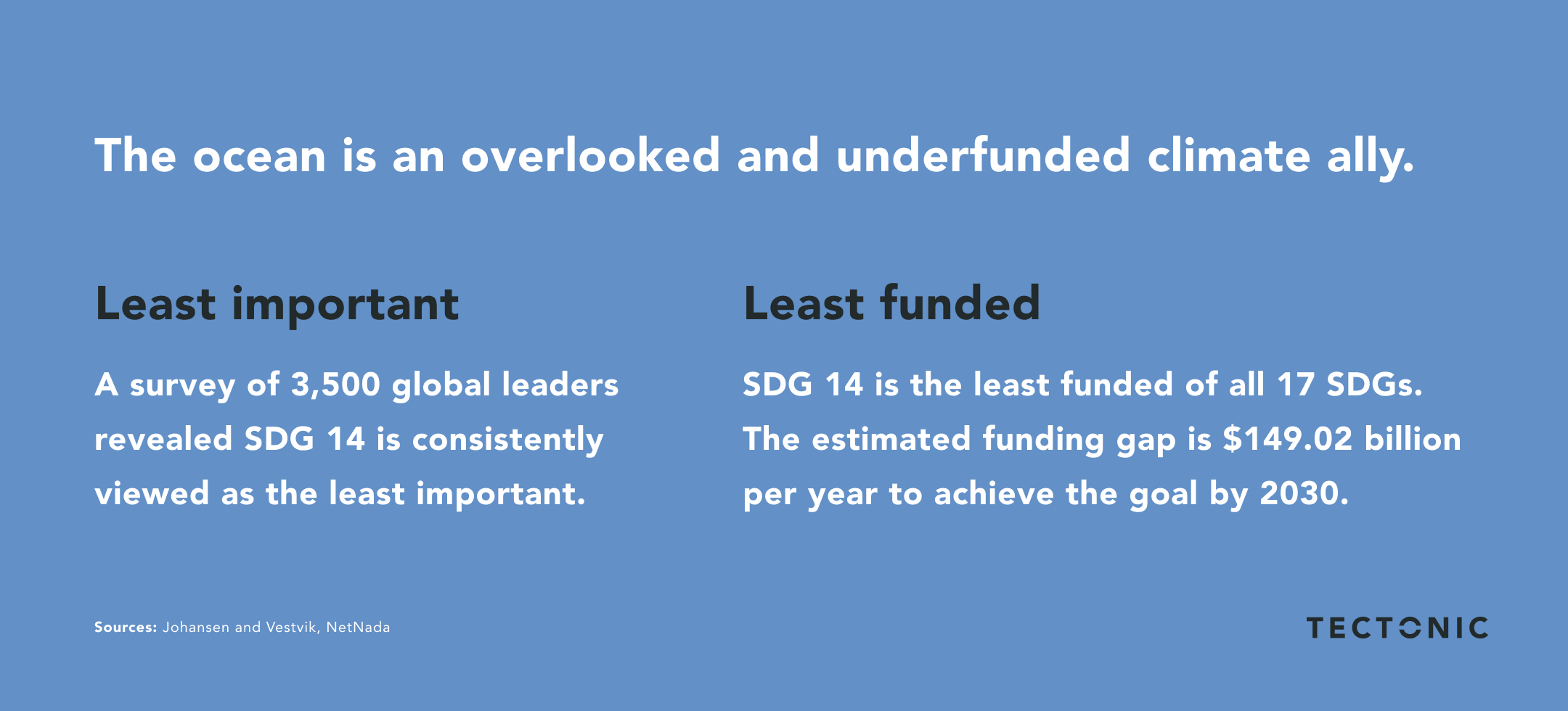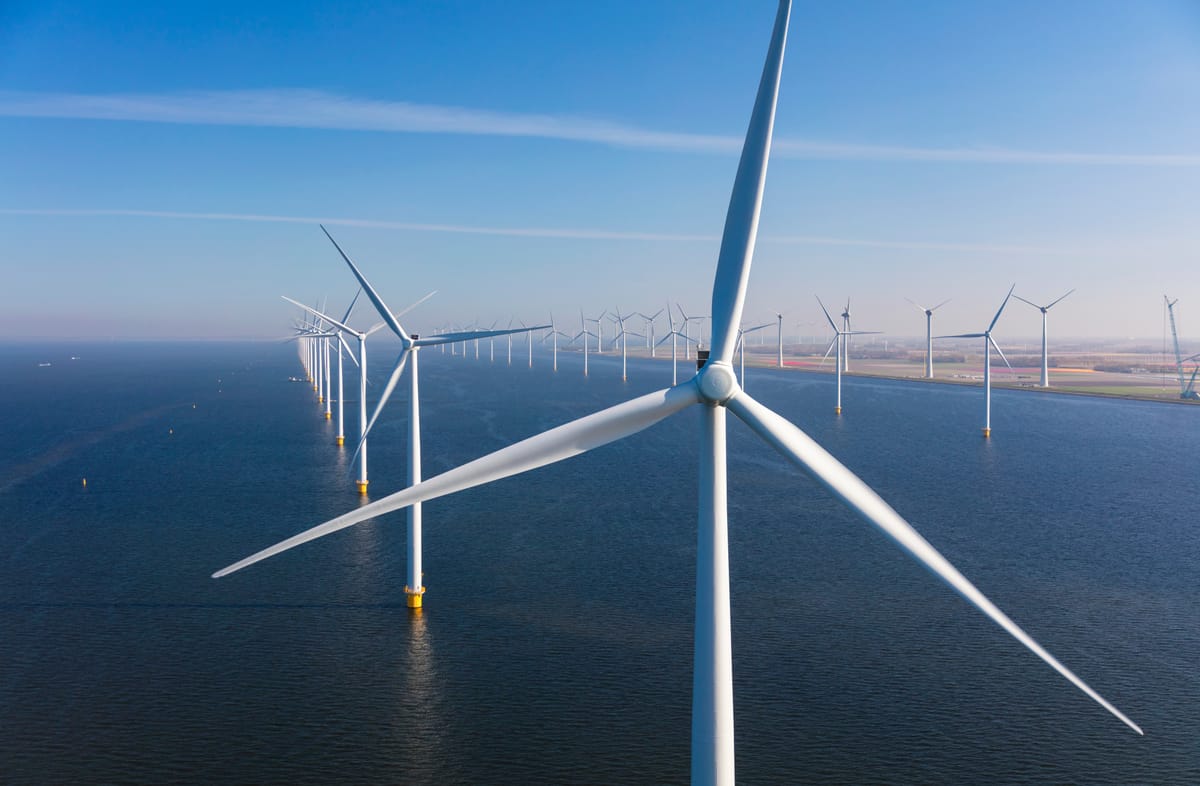Over the weekend, negotiators from nearly 200 countries reached a deal at COP29 in Baku to triple the annual funding to help developing nations confront climate change. While the New Collective Quantified Goal of $300 billion annually by 2035 is far short of the $1.3 trillion some experts said was necessary, the commitment represented significant progress at a moment when developed nations are facing tightening budgets and political shifts.
Financing is also a key challenge for fully protecting the ocean and embracing its potential as a climate solution. But recently, several financial innovations – from debt-for-nature swaps to blue bonds to public capital investments – have unlocked resources for this vital overlooked and underfunded climate ally.

Innovative private investments are advancing ocean conservation efforts. Last week, Lucas Walton’s philanthropic platform Builders Vision announced a $70 million credit guarantee for “The Bahamas Debt Conversion Project for Marine Conservation.” The initiative, involving the Government of The Bahamas, The Nature Conservancy, the Inter-American Development Bank (IDB), and others, refinances $300 million of the nation’s external debt. The project will reduce the country’s borrowing costs and unlock an estimated $124 million in savings for marine protected area management, mangrove restoration, and marine spatial planning over the next 15 years. This first-of-its-kind commitment by a family office demonstrates how private capital can catalyze large-scale conservation and climate action.
Debt-for-nature swaps are also emerging as a lifeline for nations grappling with economic and environmental challenges. Countries like Gabon, Belize, and The Bahamas are pioneering these swaps to redirect savings from restructured debt into conservation. Standard Chartered’s chief sustainability officer, Marisa Drew, recently highlighted the potential for debt-for-nature swaps in Africa, where discounted sovereign debt offers opportunities to fund marine conservation, and the issuance of blue bonds. The Nature Conservancy recently approached Angola about conducting a swap as part of the Blue Benguela Partnership, which aims to protect 4,000 miles of coastline and create an additional 148,000 square kilometers of marine conservation areas.
Investment from public and private sources is also vital for scaling ocean-based climate solutions, especially ocean-based energy. Offshore wind can reduce carbon emissions by as much as 3.6 gigatons by 2050, but the industry has faced various challenges, including manufacturing bottlenecks and changes in interest rates.
In Europe, substantial support has helped mitigate these challenges. The European Investment Bank committed €5 billion last year to support wind energy equipment manufacturers to bolster the industry. In the United Kingdom, Prime Minister Keir Starker pledged to build enough offshore wind capacity to power 20 million homes. In contrast, the United States faces more significant challenges. While one large project in the Gulf of Mexico aims to stay on track, a series of challenges has plagued a project off the coast of Massachusetts, a project off the coast of New York has been paused, and President-elect Trump’s opposition to offshore wind has slowed down projects on the East Coast.
Scaling these solutions and many more will require continued capital commitments to support early innovations and scale growth. Cross-sector leaders and investors must move urgently to bridge the funding gap that has historically hindered the full realization of ocean-based climate solutions.
Updates from Collective members:
- Cascadia Seaweed, a startup focused on seaweed-based biostimulants and livestock feed supplements for crop and cattle farmers, just successfully closed the first of their Series A Funding Round, raising CAD$4 M of their CAD$7 M target. Investors include WWF Impact (the impact investing arm of World Wildlife Fund US), Vere Ventures, Potato Impact Partners, VertueLab Climate Impact Fund, Realize Impact, the Real Estate Foundation of British Columbia, Norfolk Green Ventures, and others. With the funds, they plan to build a commercial-sized seaweed processing facility (biorefinery) on the West Coast, expand production of biomass, and broaden sales and marketing efforts of their liquid kelp extracts, biostimulants and livestock products.
- B’ZEOS, focused on bringing scalable seaweed-based packaging solutions to market, has closed their Seed Round, led by Faber with participation from the industrial group ICIG Ventures. This will enable them to scale up their innovative seaweed-based packaging solutions, accelerate product development to meet industry demands, and initiate commercial production with corporate partners.
- WhaleX Foundation was featured in an article in Hakai Magazine, highlighting their efforts to design synthetic whale poop to fertilize the ocean and sequester carbon. In December 2021, they released 300 liters—equivalent to one whale plume—of their specially formulated fake feces into the Tasman Sea off Australia’s eastern coast. Now WhaleX is gearing up to disperse five whale plumes worth of nutrient-rich slop into the Tasman Sea early next year. Their end goal is to apply their fake feces to 300 nutrient-poor, low-productivity sites around the world—dead zones also known as ocean deserts—to help remove up to 1.5 billion tonnes of carbon dioxide each year.
- Sway’s Polybags have officially debuted through the Sway Innovation Coalition, a crew of leading apparel brands who are the first to use their seaweed-based shipping bags in global supply chains. The Sway Innovation Coalition includes Alex Crane, Faherty, Florence Marine, and prAna. Sway Polybags will become more broadly available for purchase for any CPG brand starting in January through sustainable packaging supplier EcoEnclose, who played a critical role in bringing the Sway Innovation Coalition to life through production and distribution. With Umaro, Sway was also selected for $1.5M in funding through the Department of Energy's MACRO program to transform Umaro's sidestream alginate for optimized use in Sway's bioplastic, ultimately increasing performance and lowering cost of Sway's seaweed material portfolio. Lastly, Sway is hiring a Senior Materials Engineer with strong problem-solving skills and a proactive approach to help shape the future of biobased, compostable materials, starting with flexible film packaging.


